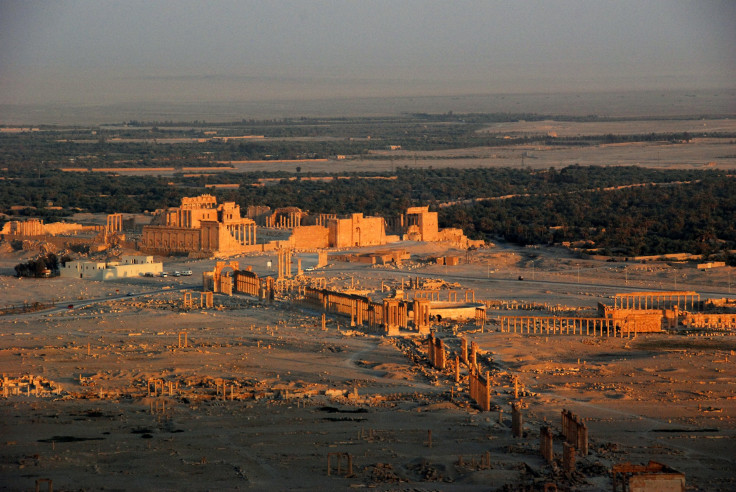Almost 300 People Are Dead After Islamic State Group Attacks Ancient City Of Palmyra

The fight for the ancient city of Palmyra left nearly 300 dead, but Syrian troops eventually pushed back members of the Islamic State group. The Syrian Observatory for Human Rights, a monitoring group based in Britain, reported Sunday 115 ISIS fighters, 57 civilians and 123 Syrian soldiers and loyalist militia members were killed in clashes in Palmyra and the modern city of Tadmor since the jihadist group first attacked Wednesday.
Islamic State members reportedly were driven out by Syrian regime forces Saturday.
Palmyra is listed as a heritage site by the United Nations Educational, Scientific and Cultural Organization (UNESCO). The organization says the site has “outstanding universal value” because of its influence on neoclassical architecture and modern urbanization.
“From the 1st to the 2nd century, the art and architecture of Palmyra, standing at the crossroads of several civilizations, married Greco-Roman techniques with local traditions and Persian influences,” reads the UNESCO report on the city, which adds that the art found there is highly sought after by “the great museums of the world.”
Its museum is home to thousands of artifacts. Sources on the ground say nothing had been damaged.
“There was no damage to the ruins, but this does not mean we should not be afraid,” Syrian antiquities chief Mamoun Abdulkarim told Agence France-Presse, adding he had been “living in a state of terror,” in fear Islamic State terrorists would damage the ancient city.
In recent months, members of the jihadist group are known to have looted and destroyed scores of historical and cultural sites, including the 3,000-year-old Assyrian city of Nimrud in March, and earlier released a video showing members ransacking the Mosul Museum. Many suspect ISIS is first looting the sites, then selling antiquities on international black markets for hundreds of millions of dollars.
The United Nations has condemned such acts as war crimes.
© Copyright IBTimes 2025. All rights reserved.





















